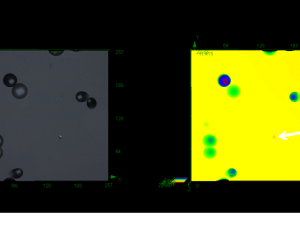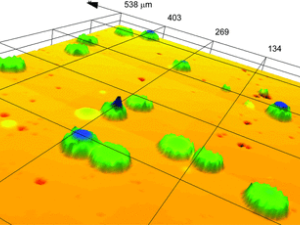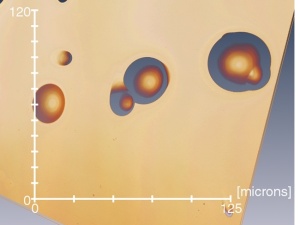Dewetting-Assisted Interface Templating: Complex Emulsions to Multicavity Particles
Abstract
Interfacial tension-driven formation of intricate microparticle geometries from complex emulsions is presented in this work. Emulsion-templating is a reliable platform for the generation of a diverse set of microparticles. Here, water-in-styrene-in-water complex emulsions undergo reproducible metamorphosis, i.e., from liquid state emulsions to solid structured microparticles are employed. In contrast to the traditional usage of glass-based microfluidics, polydimethylsiloxane (PDMS) swelling behavior is employed to generate complex emulsions with multiple inner cores. In the presence of block copolymer surfactant, these emulsions undergo gravity-driven dewetting of styrene, to transform into membranous structures with compartments. Further polymerization of styrene skeletal remains resulted in microparticles with interesting geometries and intact membranes. Mechanical and confocal microscopic studies prove the absence of polystyrene within these membranes. Using osmotic pressure, membrane rupture and release of encapsulated gold nanoparticles from such polymerized emulsions leading up to applications in cargo delivery and membrane transport are promoted. Even after membrane rupture, the structured microparticles have shown interesting light-scattering behavior for applications in structural coloring and biosensing. Thereby, proving PDMS-based swelling as a potential methodology for reproducible production of complex emulsions with a potential to be transformed into membranous emulsions or solid microparticles with intricate structures and multiple applications.



